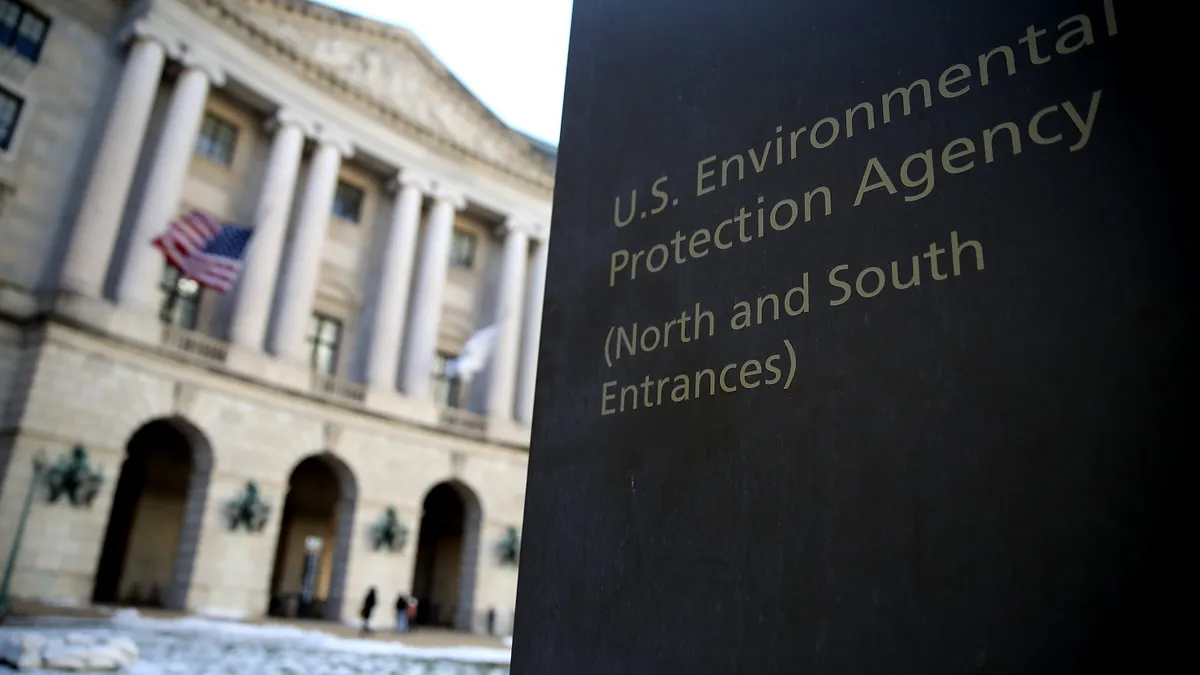Dive Brief:
- A group of nine Democrats in the U.S. House of Representatives sent a letter to the U.S. EPA on Monday urging the agency to implement a proposed credit system known as eRINs, or renewable identification numbers for electricity, after it was left out of a recent update to the Renewable Fuel Standard program.
- The eRINs are expected to allow generators of renewable electricity from biomass to profit from credits sold to petroleum-based fuel manufacturers. RINs were first created as an extension of the RFS program the EPA implemented in the 2000s that has allowed ethanol and biogas manufacturers to boost revenues by selling credits.
- The letter comes after the EPA decided not to include eRINs in its much-anticipated update to the RFS program in June, following pushback from Republicans and others about the agency’s statutory ability to implement the program. Democrats want to see eRINs generated beginning in 2024.
Dive Insight:
Waste industry stakeholders, especially biogas groups, have been vocally supportive of the eRIN proposal. They say the new credits would allow for additional revenue generation for renewable electricity generated from biomass. That category would include anaerobic digesters and landfill operators in particular, many of which already produce some amount of electricity via landfill gas operations.
But Republicans, along with groups from other industries, had previously objected to the EPA’s proposal to implement eRINs during the latest update, saying the RIN program was created for liquid fuels. They also expressed concern over the market impact of extending the credit program the burgeoning electric vehicle market sector.
EPA first implemented the pathway for credits generated via electricity from cellulosic biofuels that became known as eRINs in 2014. That’s about seven years after the Energy Independence and Security Act of 2007 directed the EPA to explore the possibility of issuing credits for “electric vehicles powered by electricity produced from renewable energy sources.”
In an April letter to EPA, Republicans said the agency was attempting to create a new RIN program more than a decade after the initial 18-month deadline in the 2007 law. But in the Democrats’ latest missive, they said the agency is within its rights to enact the program, noting EPA has solicited input on the structure of the eRIN program four times: in 2010, 2014, 2016 and 2022.
“In multiple appropriation bills since then, Congress has repeatedly provided funding and directed EPA to act on eRIN registration applications submitted under those rules. In each case, EPA accepted the funding provided by the American people but ignored their directions and the directions of Congress by failing to act on eRIN registrations and the Agency’s statutory obligation to include electricity in the RFS,” lawmakers noted in the letter.
When EPA updated the RFS program this year, it said the wide variety of comments it received on its latest eRIN proposal and the deadline it needed to meet for the broader RFS update forced the agency to leave eRINs out of the final rule. It vowed to “continue to work on potential paths forward for the eRIN program,” likely with additional stakeholder input.
The group of Democrats is urging EPA to adopt any amendments necessary to implement the eRIN credit program by the end of September, allowing for their generation at the start of 2024 alongside the rest of the previously-released RIN volumes.
“EPA staff and leadership have already completed the hard work of developing such rules and preparing to implement the program,” the group wrote. “Further delay ... introduces unnecessary risk and jeopardizes billions of dollars that could be invested in accelerating electric vehicle adoption and new low carbon electricity production.”
A spokesperson for Rep. John Garamendi, a California Democrat who signed the letter, said the lawmaker would reintroduce his own bill after the current recess compelling the EPA to move ahead on approving access to the program for eligible renewable biomass, biogas, or waste-to-energy facilities. He proposed a similar bill in the last Congress.















